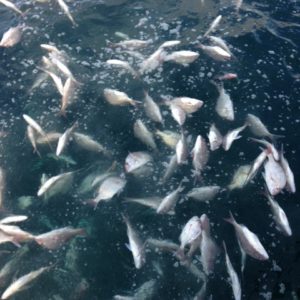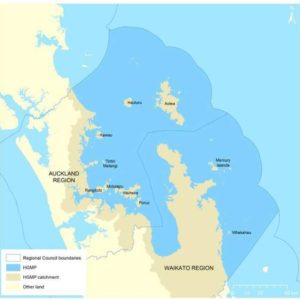In the Bay of Plenty we don’t have to look far for evidence that the Quota Management System is not working. LegaSea is concerned that the failure of the QMS is having major consequences.

Moreover, the inaction by Fisheries New Zealand and the Minister of Fisheries Stuart Nash to address the serious issues of depletion and habitat destruction in the Bay of Plenty is causing friction in the community.
The sad irony is that these social fractures may take longer to heal than the time it would take to rebuild our depleted fisheries.
For years the Motiti Rohe Moana Trust tried and failed to get protection for the fisheries and marine waters around Motiti Island, Bay of Plenty. Their numerous efforts to get a positive response from the Ministry and Minister were rebuffed. Eventually the Trust gave up trying to use the Fisheries Act and sought relief through the Courts.
In 2017 the High Court ruled that the Resource Management Act (RMA) could be used to manage the effects of fishing on the wider environment. The Crown challenged the outcome via the Court of Appeal, meanwhile the Trust continued to pursue their interests through the Environment Court.
It was during this process that the Trust confirmed it was seeking to establish no-take zones, extending one kilometre out, around popular reefs in the Bay of Plenty. These reefs represent prime fishing areas.
After witnessing the Ministry’s bumbling attempt to justify the gross mismanagement of crayfish, snapper and hapuku in the Bay, the Environment Court approved rules preventing fishing in specified areas.
In the Bay this is most significant. Firstly because the knock-on effect would push fishing effort onto the remaining open reefs, depleting those areas. Secondly, that the remainder of the Bay’s habitat has been decimated by decades of trawling.
After discovering the Trust’s intent was to use the RMA to deny fishing opportunities to the people of the Bay of Plenty the New Zealand Sport Fishing Council and LegaSea withdrew its support.
Currently the RMA is under review and recreational fishers need to get involved. There are also 13 Regional Councils at various stages of their plan review process under the RMA, with decisions on Marlborough’s Environment Plan due in November.
This added complexity involving the Councils was avoidable and largely due to years of fisheries mismanagement. To avoid future chaos we need to remove the overlap between the various legislation, dismantle the QMS, and clean up the fiasco that masquerades as fisheries management in New Zealand.
More info
The New Zealand Sport Fishing Council is leading the response to the Resource Management Act proceedings. More details can be found on their website RMA page here.





